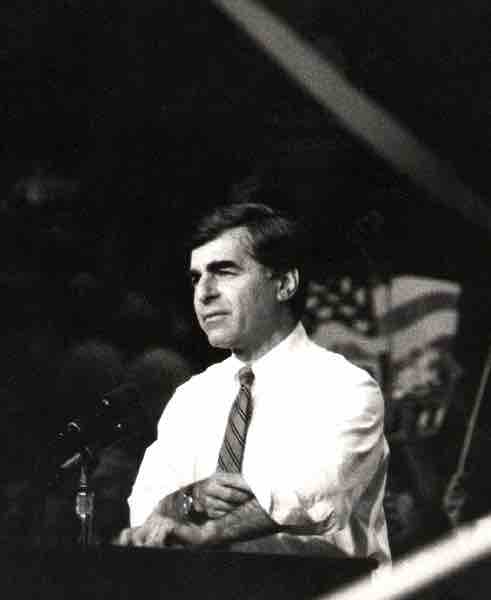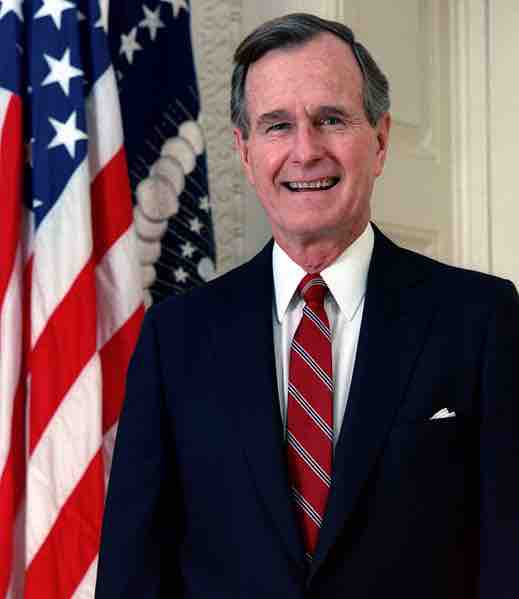Overview
The United States presidential election of 1988 featured no incumbent president, as President Ronald Reagan could not seek reelection after serving the maximum two terms allowed by the 22nd Amendment. Reagan's Vice President George H. W. Bush won the Republican nomination, while the Democrats nominated Massachusetts governor Michael Dukakis. Bush capitalized on a good economy, a stable international stage, and Reagan's popularity, while Dukakis's campaign suffered from several miscues. The result was a third consecutive Republican landslide victory and George H. W. Bush became the 41st president of the United States.

Michael Dukakis, 1988
Michael Dukakis at a campaign rally at UCLA's Pauley Pavilion on the eve of the 1988 election.
The Campaign
In the 1984 presidential election, the Democrats had nominated Walter Mondale, a traditional New Deal-type liberal as their candidate. When Mondale was defeated in a landslide, party leaders became eager to find a new approach to win the presidency. After Reagan's image was tarnished in the Iran-Contra scandal, along with Democrats winning back control of the Senate in the 1986 congressional elections, Democratic leaders felt more optimistic about winning the presidency in 1988. Confident they could win back the White House, Democrats mounted a campaign focused on more effective and competent government under the leadership of Massachusetts governor Michael Dukakis.
When Bush found himself down in the polls, political advisor Lee Atwater launched an aggressively negative media campaign, accusing Dukakis of being soft on crime and connecting his liberal policies to a brutal murder in Massachusetts. The Bush campaign sought to portray Dukakis as unreasonably left-wing and critiqued him for such positions as opposing mandatory recitation of the Pledge of Allegiance in schools and being a member of the American Civil Liberties Union (ACLU). More importantly, Bush adopted a largely Reaganesque style on matters of economic policy, promising to shrink government and keep taxes low.

President George H. W. Bush
Official portrait of George H. W. Bush, former President of the United States of America (1989).
Results
In the November 8 election, Bush won a majority of the popular vote and a lopsided majority of states in the Electoral College. Although his victory was not a landslide in the popular vote, Bush was the last Republican to carry certain states which have since gained a reputation as "blue states" that favor the Democratic Party, including included Vermont, Maine, Connecticut, New Jersey, Delaware, Maryland, Pennsylvania, Michigan, Illinois, and California. This in fact was the last election to date in which a Republican presidential nominee won a majority of northern electoral votes. Bush's victory percentage – 53.4% — has not yet been surpassed in any subsequent presidential election, and he was the last candidate to get a majority of the popular vote until his son George W. Bush in the 2004 election.
The Inauguration of George H.W. Bush
Chief Justice William Rehnquist administered the oath of office to Bush during inaugural ceremonies at the United States Capitol on January 20, 1989.